Father with pins and needles told by doctors he has huge deadly brain tumour
When Rob and Alison went on a trip to Cuba he started complaining about feeling pins and needles in his fingers and face
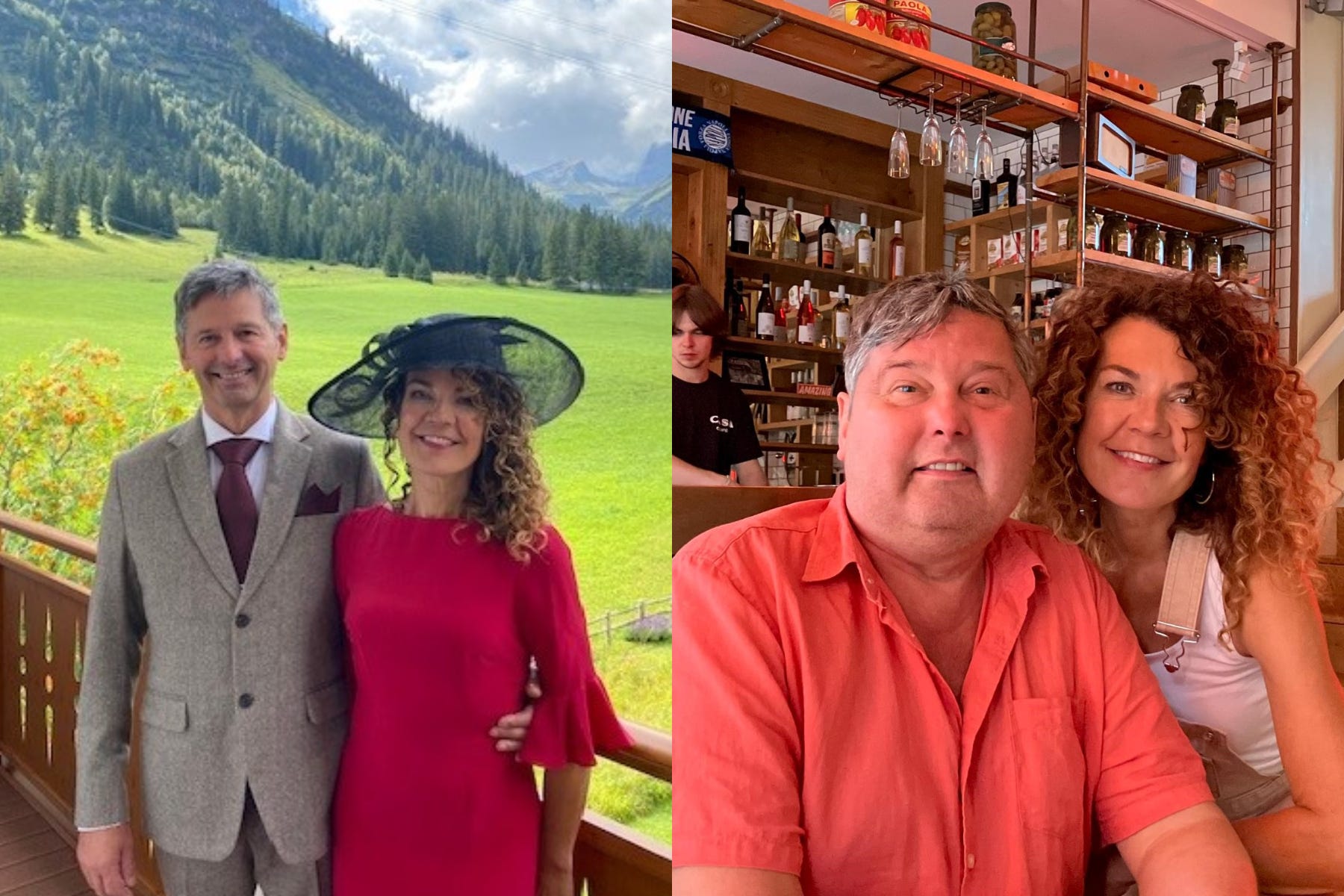
Your support helps us to tell the story
From reproductive rights to climate change to Big Tech, The Independent is on the ground when the story is developing. Whether it's investigating the financials of Elon Musk's pro-Trump PAC or producing our latest documentary, 'The A Word', which shines a light on the American women fighting for reproductive rights, we know how important it is to parse out the facts from the messaging.
At such a critical moment in US history, we need reporters on the ground. Your donation allows us to keep sending journalists to speak to both sides of the story.
The Independent is trusted by Americans across the entire political spectrum. And unlike many other quality news outlets, we choose not to lock Americans out of our reporting and analysis with paywalls. We believe quality journalism should be available to everyone, paid for by those who can afford it.
Your support makes all the difference.A father who had pins and needles in his face and fingers while on holiday was given just months to live.
Robert Armstrong, 58, a marine engineer from Felixstowe, East Suffolk, began feeling “pins and needles” on the right side of his body a few months after hurting his back in January 2023.
But what the father-of-two thought was a trapped nerve turned out to be a large inoperable tumour in the middle of his brain.
In a matter of weeks, Rob’s symptoms deteriorated and he started losing his vision, sensation and movement, as well as being constantly tired.
Rob underwent a type of radiation therapy in June 2023, known as Gamma Knife radiosurgery, a highly precise tool used to target brain tumours without damaging the surrounding cells.
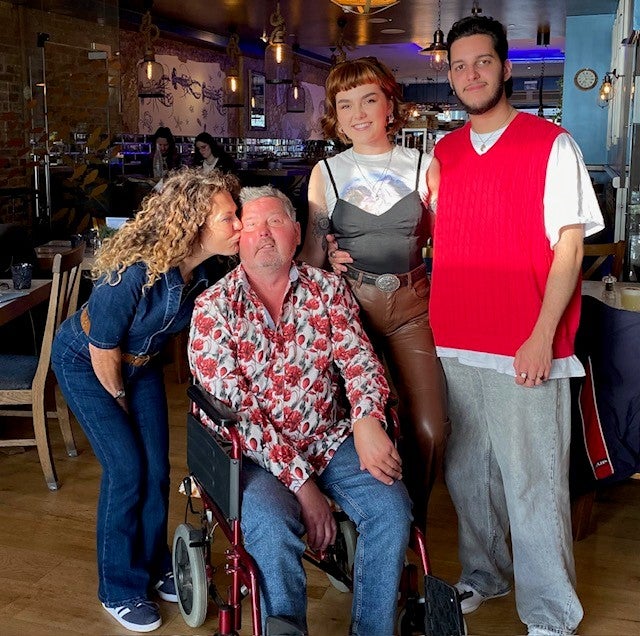
Rob’s tumour “shrunk significantly” but his symptoms persisted and in May 2024 he was told by doctors that they were out of options.
Despite the devastating news Rob remained optimistic they would find another solution, and after seeking a second opinion has learned about a novel treatment which could help him fight the cancer.
Rob’s daughter, Loti Armstrong, 25, has launched a fundraiser on GoFundMe to help pay for the treatment – a type of antibody drug designed to interfere with cancer cells’ ability to replicate – that costs £14,000 a session and is administered into the patient’s blood stream every three weeks.
Loti, a venue manager from Margate, Kent, told PA Real Life: “It’s really weird thinking about who he has been for the majority of my life and comparing that to the person who my dad is now.
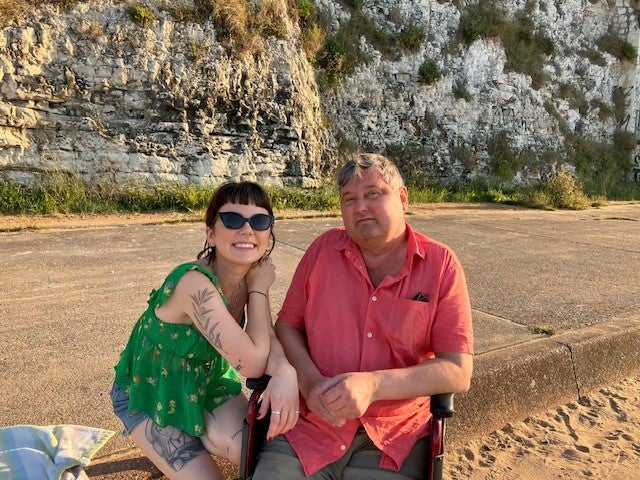
“I had the notion, as everyone does accidentally, that I would have plenty more years to annoy, argue with, go on holiday with and celebrate with my dad.
“Nothing is certain. Dad’s always been such a strong, healthy person, doesn’t smoke and is always doing stuff, and then for him to have this, and it goes so quickly.
“It was really unexpected, even within his family because they’ve got no history of cancer.”
Rob was out with his wife Alison and an elderly lady who she cares for in January 2023, when the woman suddenly took a tumble and Rob intervened to prevent her from falling.
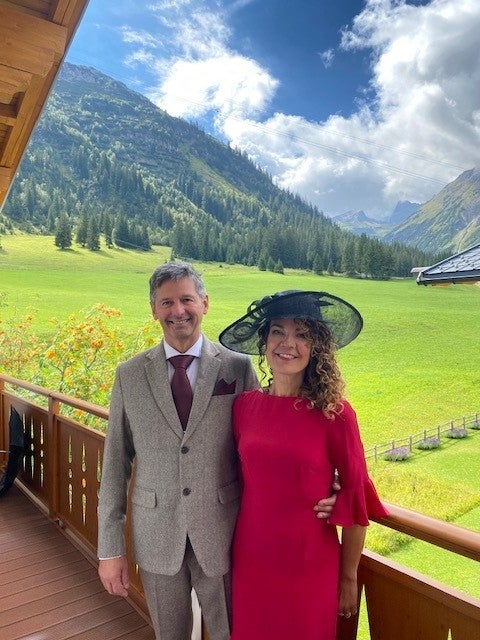
“He thought he had twisted something in his back and we were joking about how he’ll never do a good deed again,” said Loti.
“He’s had back pain in the past because his job was quite physical and normally he would just moan about it, put some Deep Heat on and move on.
“But this time it was different, he needed to take some time off.”
When Rob and Alison went on a “bucket list” trip to Cuba in March, he started complaining about feeling pins and needles in his fingers and face.
They went to the doctor’s upon returning to the UK in April, suspecting he was suffering from a trapped nerve, but it was far worse.
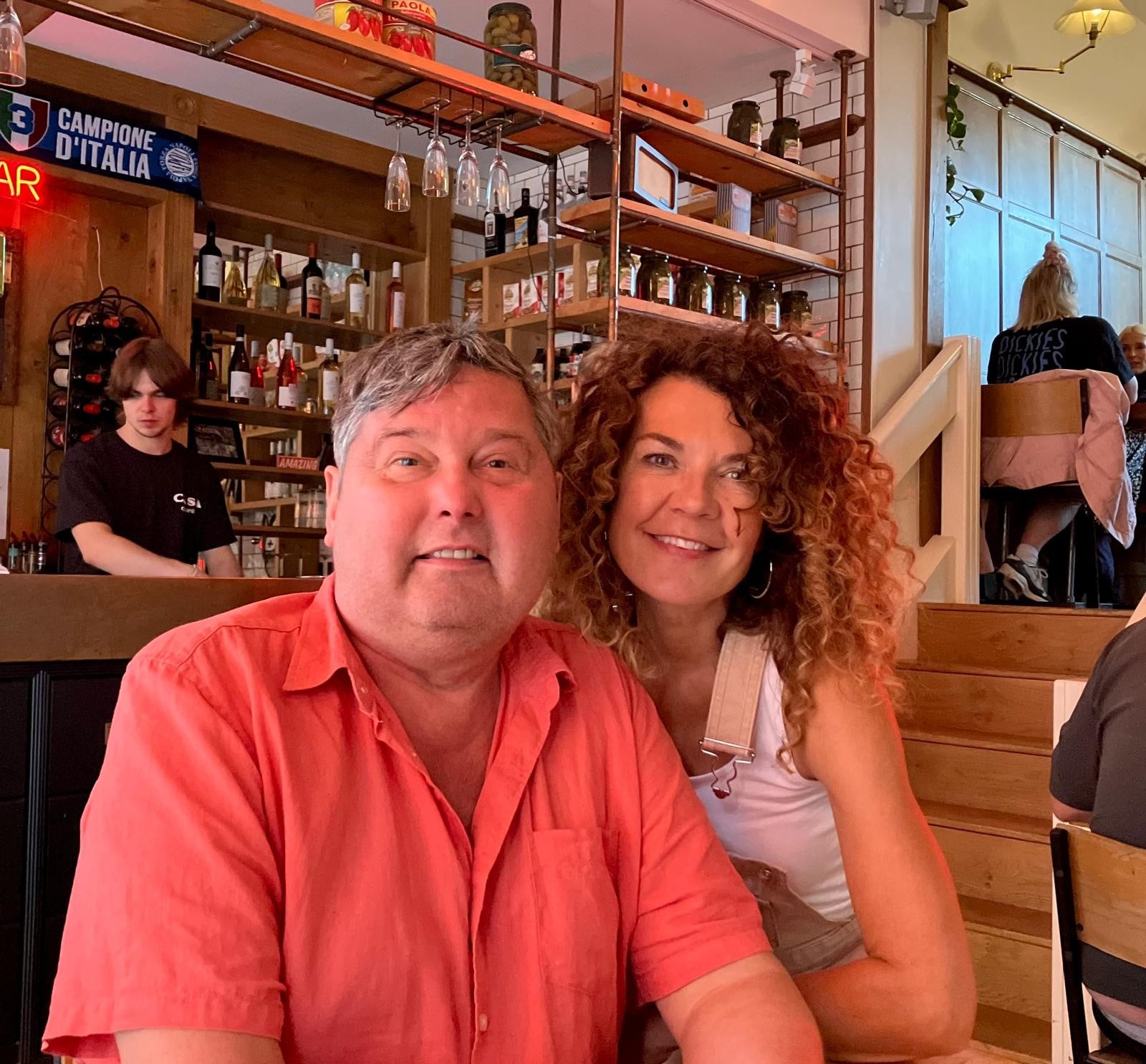
At first doctors thought Rob may have experienced a mini stroke but scans revealed a five centimetre tumour in the middle of his brain.
“He was diagnosed with an inoperable, terminal brain tumour and given three months to live or six months of treatment,” said Loti.
“It was a really shocking, short turnaround.”
Loti and her partner Johnny, 23, were in the process of moving from London to Margate and were living with her parents at the time while waiting to sign their lease.
“We actually saw it in real time which was obviously horrifying,” she said.
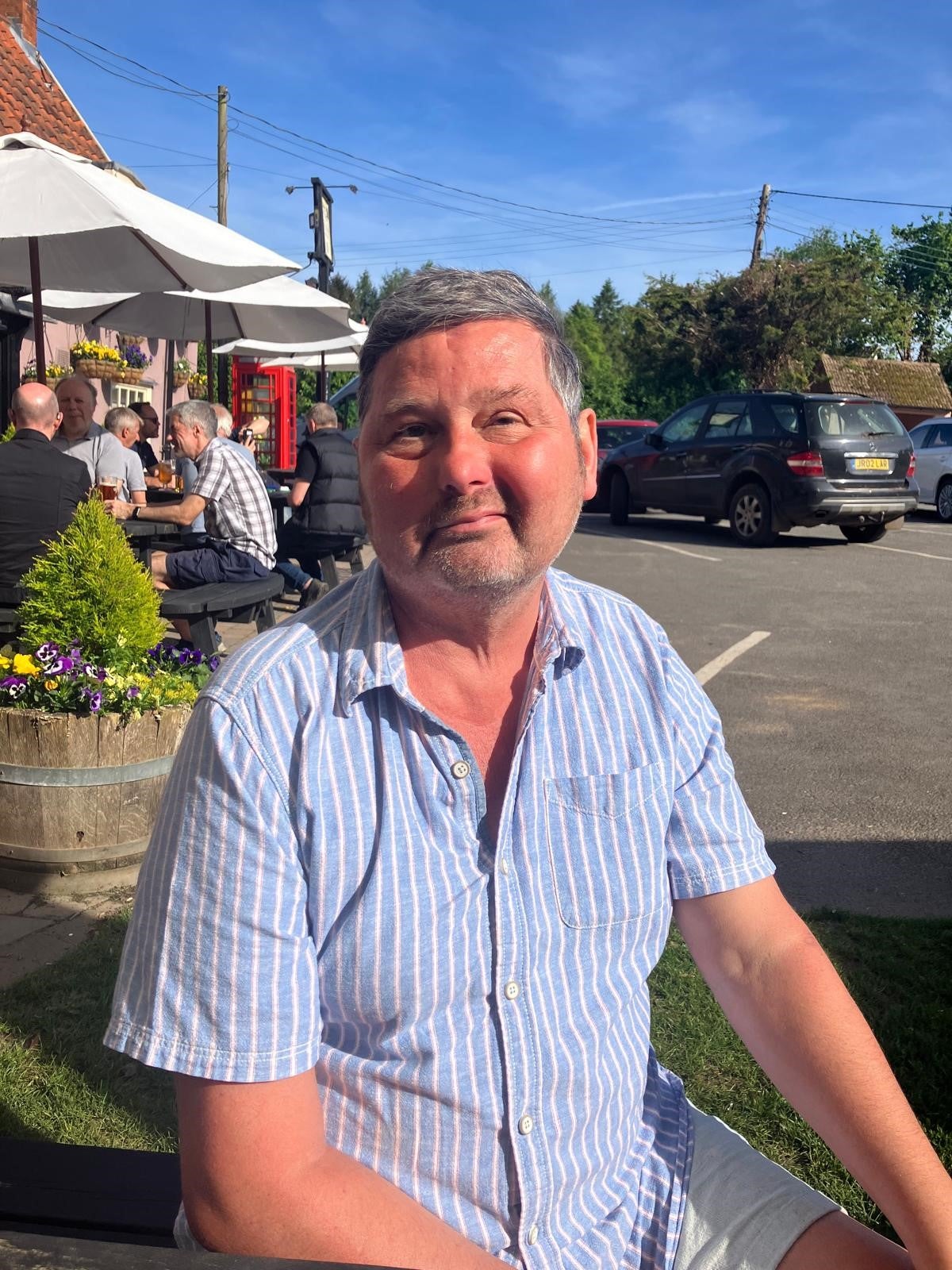
Over the coming weeks Rob’s symptoms developed at an alarming rate as his tumour continued to grow.
Loti noticed he was struggling to use his right arm and would be exhausted by a 20-minute walk.
When Alison tested his peripheral vision by slowly moving an object from one side to the other, she realised he could see only out of his right eye if the object was placed directly in front of him.
“It was really strange because he was such a larger than life character,” said Loti.
“As a child, he was a monolith of a man, like the person who knew everything, understood everything and then having to explain stuff to him when he forgot was a really weird culture shock.”
NHS symptoms of a brain tumour
The symptoms of a brain tumour vary depending on the exact part of the brain affected.
Common symptoms include:
- headaches
- seizures (fits)
- persistently feeling sick (nausea), being sick (vomiting) and drowsiness
- mental or behavioural changes, such as memory problems or changes in personality
- progressive weakness or paralysis on one side of the body
- vision or speech problems
Sometimes you may not have any symptoms to begin with, or they may develop very slowly over time.
A biopsy revealed Rob’s brain cancer was not the primary tumour, so doctors carried out a series of tests to try to find the original source, but were unable to locate it.
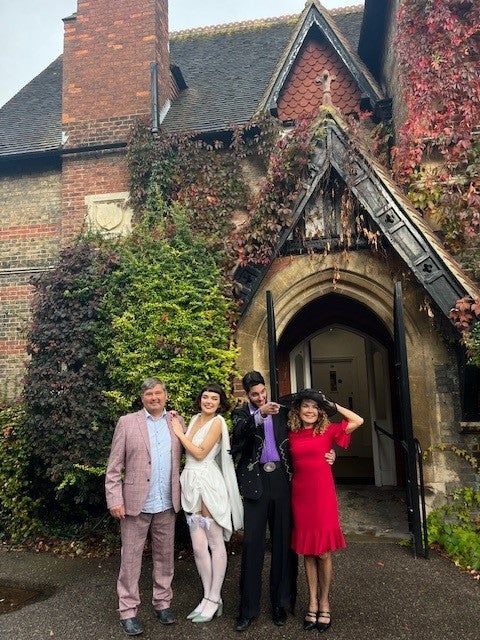
In June 2023, they decided to treat Rob with Gamma Knife radiosurgery, a type of radiation therapy which aims to destroy cancer cells with a very precise and intense dose of radiation.
“It was horrible to see him undergo it – it was brutal,” said Loti.
“It’s usually administered once but he had it five times.
“He would just sleep a lot, like you would say hello, hug and then he would have to lie down.”
The day Rob received his results in September, Loti, who had since moved to Margate with her partner, took her mother out for a drink and waited for the doctor to call.
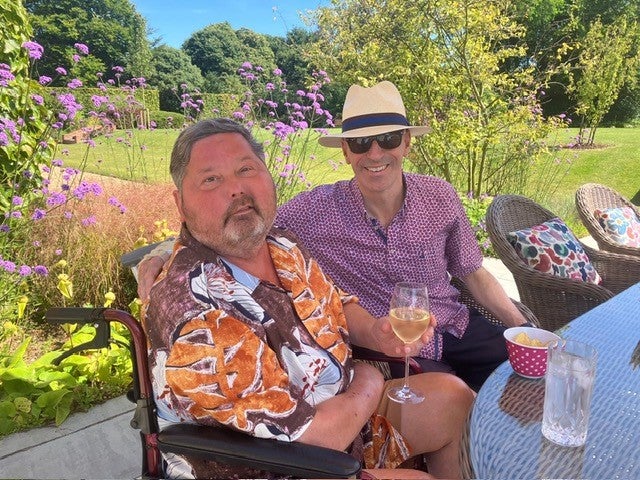
Fortunately it was good news – the tumour had shrunk significantly.
“We immediately rushed home and were like ‘Oh my god’,” said Loti.
“Dad hearing that was really emotional. I remember him shouting ‘I told you, I knew I wasn’t dying’.”
Rob’s condition was expected to improve with physiotherapy but sadly over the coming months there was little change.
Eventually, Alison decided to stop working in sales for a travel company and care for her husband full-time.
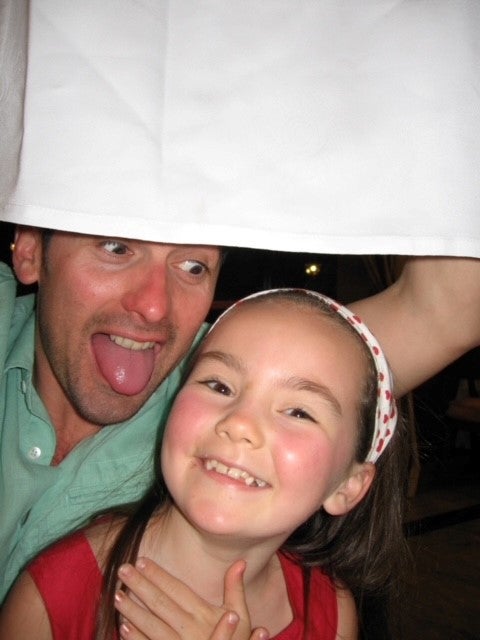
In May 2024, Loti said they were informed that the doctors had run out of treatment options and there was nothing to be done.
Not wanting to give up, Rob and Alison decided to get a “second opinion” and learned about a new type of drug called trastuzumab deruxtecan which is designed to interfere with processes that help cancer cells grow.
“It was a really distressing thing for them to hear but he was still very optimistic and very determined,” said Loti.
“He said ‘No, there are lots of clever people in the world, there will be something’ and thankfully they did get a second opinion.”
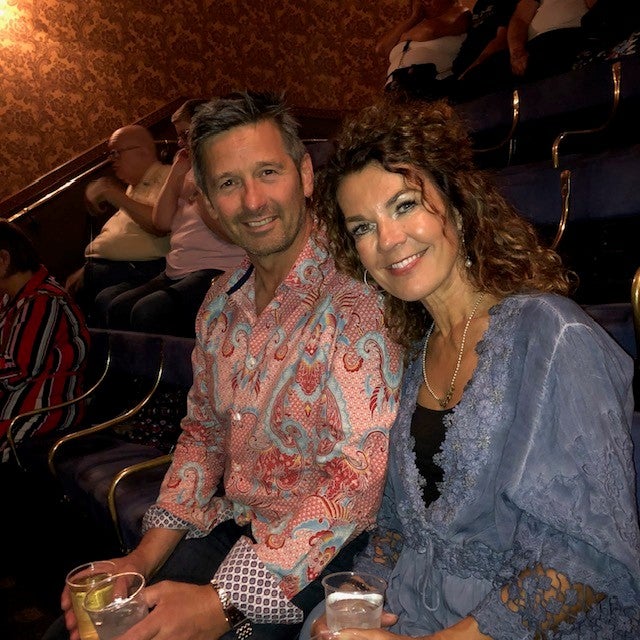
Each round of treatment which is administered intravenously every three weeks costs around £14,000.
Loti’s brother Stephen, 39, and his wife Jen have offered to pay for the first round of treatment but they will need to find more funds quickly.
To help, Loti has launched a fundraiser on GoFundMe which has so far received just short of £18,000.
“We are super overwhelmed by the support,” said Loti.
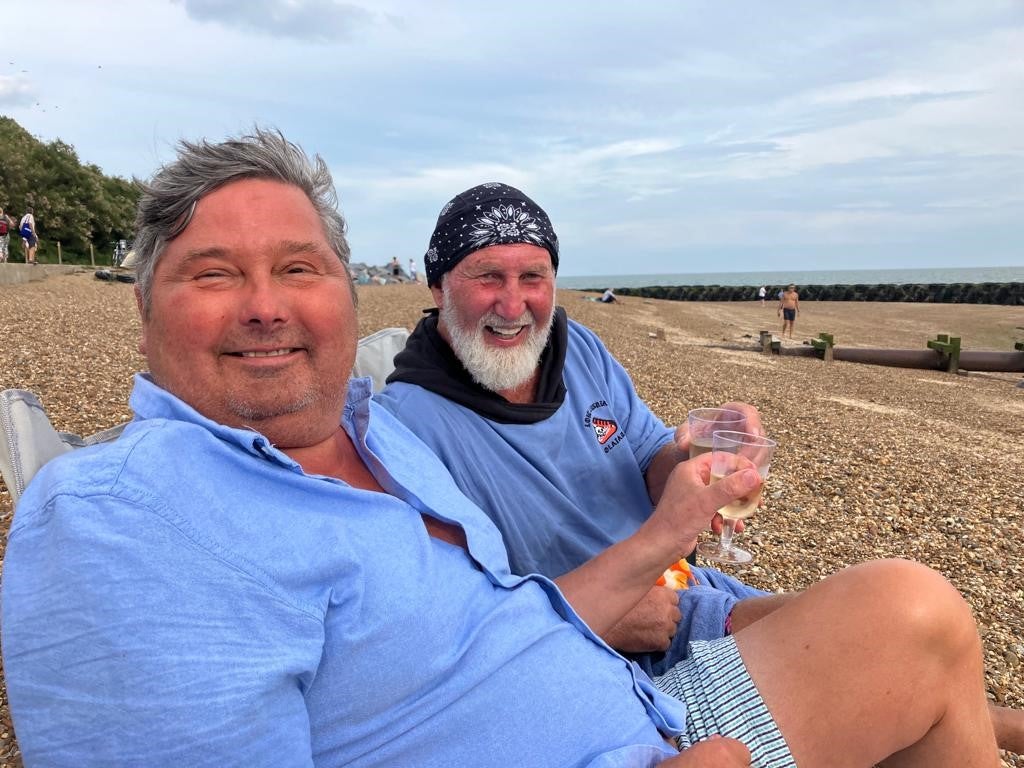
“The day we hit the £10,000 target my dad’s friends organised a little tea party.
“We appreciate all the donations so far and if you’re able to share our fundraiser with friends, family, colleagues and whoever will listen, it would really, really help.
“Thank you again, everyone has been beyond lovely.”
To support Rob visit: www.gofundme.com/f/last-chance-cancer-treatment-for-dad.